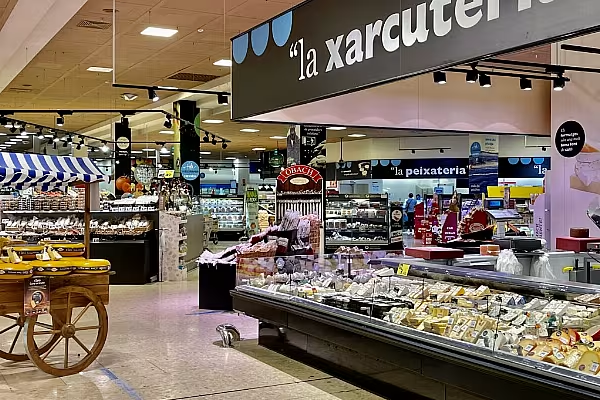Grocery retailer Caprabo has announced that it has set a new goal to achieve net zero greenhouse gas emissions by 2050.
The retailer has also decided to adhere to the 'Code of Conduct on responsible food business and marketing practices' approved by the European Union last July to achieve this target.
It is an initiative that aims to create a common agenda in the food sector to promote environmental sustainability in the industry as a whole and reduce the environmental impact.
Responsible Food Business And Marketing Practices
The code sets seven major objectives, which include the promotion of healthy, balanced, and sustainable diets; working for the prevention and reduction of food waste; achieving a climate neutral food chain in Europe; orienting the food chain towards a circular economy and efficiency in the use of resources; ensuring sustained, inclusive, and sustainable economic growth and decent work for all members of the value chain; creating sustainable value through partnership and collaboration; and sustainable sourcing in supply chains.
Through its decalogue of healthy and sustainable commitments, which Caprabo has had in place since 2019, the business aligns itself with these common objectives.
The principles established in the decalogue value the company's commitment to promoting healthy eating and responsible consumption, preventing childhood obesity, and promoting sustainability and the local economy.
Cristina Madrilley from Caprabo CSR, said, "Proactivity in terms of sustainability and care for the environment is a priority in Caprabo's CSR strategy and, therefore, from our supermarkets we constantly work to promote both healthy eating and responsible consumption in favour of the health and well-being of all and the sustainability of our activity."
"Cooperation towards common goals may be the key that drives the ultimate sustainable transformation of our sector," Madrilley added.
Caprabo Committed To Sustainable Food
The new zero emissions target set by the company reinforces the sustainability strategy that it is developing within the framework of its decalogue of commitments.
The company promotes measures to take care of the environment, such as the reduction and management of waste that reduce CO2 emissions, encouraging the consumption of local products that generate lower environmental impact, collaborating with international entities such as World Wildlife Fund for Nature (WWF), and participating in initiatives such as the European Waste Prevention Week, among others.
© 2021 European Supermarket Magazine. Article by Conor Farrelly. For more Retail news, click here. Click subscribe to sign up to ESM: European Supermarket Magazine.













